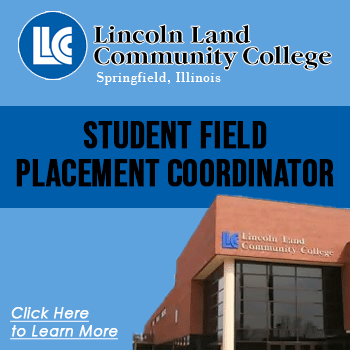This job has Expired
USDA-ARS Environmental Microbial and Food Safety Laboratory Postdoctoral Fellowship: Maryland
Job Description
USDA-ARS Environmental Microbial and Food Safety Laboratory Postdoctoral Fellowship: Maryland
Click for a hub of Extension resources related to the current COVID-19 situation.
Agency
U.S. Department of Agriculture (USDA)
Location
Beltsville, Maryland
Job Category
Internships
Salary
Monthly Stipend TBD
Last Date to Apply
08/31/2022
Website
https://www.zintellect.com/Opportunity/Details/USDA-ARS-2022-0272
Description
*Applications are reviewed on a rolling basis. ARS Office/Lab and Location: A research opportunity is currently available in the Environmental Microbial and Food Safety Laboratory (EMFSL) at the U.S. Department of Agriculture (USDA), Agricultural Research Service (ARS) located in Beltsville, Maryland. The Agricultural Research Service (ARS) is the U.S. Department of Agriculture's chief scientific in-house research agency with a mission to find solutions to agricultural problems that affect Americans every day from field to table. ARS will deliver cutting-edge, scientific tools and innovative solutions for American farmers, producers, industry, and communities to support the nourishment and well-being of all people; sustain our nation’s agroecosystems and natural resources; and ensure the economic competitiveness and excellence of our agriculture. The vision of the agency is to provide global leadership in agricultural discoveries through scientific excellence. Research Project: The mission of our USDA ARS Environmental Microbial and Food Safety Laboratory is to reduce foodborne illness by examining routes of contamination of fruits and vegetables with bacterial pathogens. The participant will examine issues related to irrigation water quality and sustainability. Specifically, the incumbent will contribute research to improve cost-effective filtration technology for surface irrigation water using sand / zero-valent iron filtration and its effect on foodborne pathogens. Survival of pathogens pre- and post-filtration in water, soil, and transfer to fruits / vegetables will be examined. Additionally, biological interventions (lytic bacteriophages) will be supplemented into filtration regimes to determine if they can enhance the reduction of bacterial foodborne pathogens in the pre-harvest environments. This research will be conducted at the USDA Agricultural Research Service (ARS) Environmental Microbial and Food Safety Laboratory (EMFSL). The participant will design and conduct all aspects of the experiment, from laboratory to growth chambers to fields, in consultation with ARS and academic collaborators. This includes filter construction, microbiological analysis (culture-dependent), and culture-independent (digital PCR, multiplex PCR, and microbial community analysis if desired). Participant will also be charged with statistical analysis of data in consultation with ARS colleagues. Participant will oversee field studies and cultivation and growth of plants/ fruits, and filter construction and maintenance as related to the research project. The participant will learn methods to reduce bacterial pathogen loads in irrigation water, novel filter design concepts, integrated data collection and analysis methods. The participant will have the opportunity to learn more in-depth statistical analysis techniques or molecular biology tools (bioinformatics) through various trainings and workshops if desired, and also through participating on inter-disciplinary projects within ARS. This is an integrated produce safety research project, and the participant will have opportunities to learn at each stage of the continuum. The participant can expect to present data / findings at international scientific meetings related to food safety / environmental microbiology, and regional (U.S. Mid-Atlantic region) meetings as well. USDA ARS EMFSL is located in the metro-Washington, D.C. area at the Beltsville Agricultural Research Center (BARC), which provides ample interaction with ARS scientists as well as with other government research scientists and policymakers at regulatory agencies in private industry. EMFSL has a strong history of collaborating with many different academic institutions and U.S. federal government agencies on large field- and laboratory-based research. ORISE fellows, post-doctoral research associates and interns who have previously worked at EMFSL have had success in using their experience to gain different opportunities at the state and federal government levels, and with trade associations and in private industry. Learning Objectives: There are three learning objectives for the participant. 1) Characterize bacterial pathogens levels in the produce pre-harvest environment and follow their levels and status from irrigation water to transfer to commodities and soils. 2) Reduce bacterial pathogens levels in the produce pre-harvest environment through cost-effective and novel filtration technologies. 3) Utilize either data analysis or molecular analysis tools (or both) to inform strategies to optimize water filtration systems that can be used to improve water quality and availability. Mentor(s): The mentor for this opportunity is Manan Sharma (manan.sharma@usda.gov). If you have questions about the nature of the research please contact the mentor(s). Anticipated Appointment Start Date: October 3, 2022. The start date is flexible and will depend on a variety of factors. Appointment Length: The appointment will initially be for two years but may be renewed upon recommendation of ARS and is contingent on the availability of funds. Level of Participation: The appointment is full time. Participant Stipend: The participant(s) will receive a monthly stipend commensurate with educational level and experience. Citizenship Requirements: This opportunity is available to U.S. citizens, Lawful Permanent Residents (LPR), and foreign nationals. Non-U.S. citizen applicants should refer to the Guidelines for Non-U.S. Citizens Details page of the program website for information about the valid immigration statuses that are acceptable for program participation. ORISE Information: This program, administered by ORAU through its contract with the U.S. Department of Energy (DOE) to manage the Oak Ridge Institute for Science and Education (ORISE), was established through an interagency agreement between DOE and ARS. Participants do not become employees of USDA, ARS, DOE or the program administrator, and there are no employment-related benefits. Proof of health insurance is required for participation in this program. Health insurance can be obtained through ORISE. Questions: Please visit our Program Website. After reading, if you have additional questions about the application process please email USDA-ARS@orau.org and include the reference code for this opportunity.
Qualifications
The qualified candidate should have received a doctoral degree in one of the relevant fields (e.g. Agricultural Engineering, Microbiology), or be currently pursuing the degree to be received by December 31, 2022. - Ability to work independently when needed and collaboratively when required - Digital PCR techniques, along with automated nucleic acid extraction techniques - Basic food or environmental microbiology skills (culturing and quantifying microorganisms at high and low levels from complex matrtices, PCR experience, experience with water filtration or water quality) - Organizing and formatting data for statistical analysis
Contact Person
USDA-ARS@orau.org
Bookmark the permalink .
Comments are closed.
*Please mention you saw this ad on AcademicJobs.*




